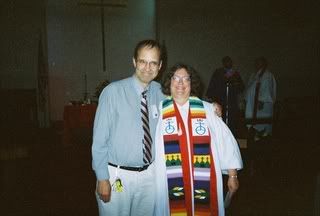I’m visiting New Orleans this week, and a “can’t miss” treat was going to the Camellia Grill on Carrollton Ave. It’s an old restaurant where everyone sits together at the counter that serpentines across the floor.
The servers all wear white jackets and black bowties, as they have since 1946. They exude southern hospitality, greeting customers with a warm smile, a little conversation (if you’re in the mood), and a drinking straw presented with a certain charming flair.
Although I’m not a native of New Orleans, the atmosphere was akin to being welcomed home. What was interesting to me was the next morning we decided to check out another location of the Camellia Grill. It’s newer. The food: the same (excellent). The servers wear the signature white jackets and black bowties. But I noticed that, except for one, the servers seemed to “wear” their uniform differently. They seemed to hang loosely with bowties askew. And while our server was pleasant enough, he seemed to miss the little details. The place just was not as “homey” as the original.
It was not a difference in the ages of the servers, either. Most were young men, black and white. But the way the men on Carrollton Avenue wore their uniforms expressed a certain care, a graciousness that offered welcome.
It strikes me that how we carry ourselves, how we wear our faith, has a lot to do with our hospitality to others. When we wear the garments of God’s love, grace and mercy as if they were made for us, we extend that love, grace and mercy to others with authenticity. We may share a belief in the same God with many, but unless we offer God’s love as if it is a part of our being, the world may not see that we are inviting them into relationship with us and with God.
Let’s wear the love of God that all who meet us may feel that they have been welcomed home.




